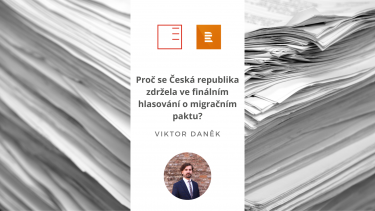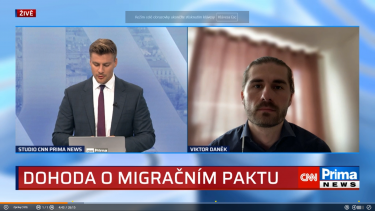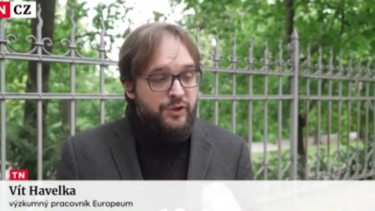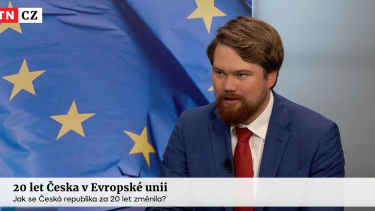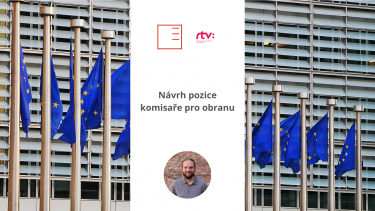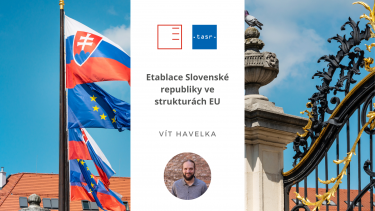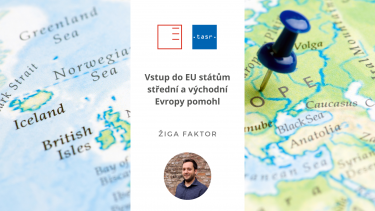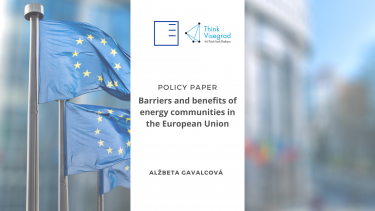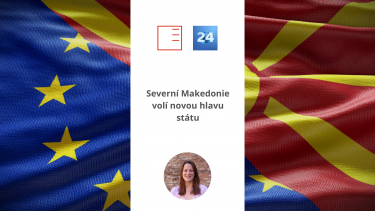ČRo | Czech Republic abstains in the final vote on the migration pact
The Migration Pact heads to its final vote in the Council of Ministers. The Czech Republic will abstain in this final vote. What is the process of approval within the European Union? What led to the change of position? And what are the implications for the EU of the just-approved migration pact? Viktor Daněk, Deputy Director of EUROPEUM Institute, comments for Czech Radio.
Show moreCNN Prima News | Future of Europe after the European Parliament elections
In addition to the usual established parties, there are also recessionary movements running for the European Parliament. We are also seeing an increase in support for national conservative parties or far-right entities. What tendencies are visible on the European political scene today? Is the European Parliament facing a rise in Euroscepticism? And where will Europe go after the forthcoming elections? This and more comments Viktor Daněk, Deputy Director of EUROPEUM Institute.
Show moreCNN Prima News | EU member states confirm agreement on final migration pact
Representatives of the EU Member States in Brussels confirm their agreement on the final form of the migration package. The Czech Republic reportedly abstained from voting, while Hungary and Poland opposed it. Viktor Daněk, Deputy Director of EUROPEUM Institute, commented on the final form of the migration pact.
Show moreTelevizní noviny | Do the EU elections have the potential to change the support of Ukraine?
There have been opinions that call for changes of the EU including defense cooperation or foreign policy. The topic that should stay important even after the EU elections is the support of Ukraine. Do the EU elections have the potential to change the intensity of the EU's support of Ukraine? Vít Havelka, a senior researcher at EUROPEUM Institute answered for the main evening broadcast of TV Nova.
Show more
TN.cz | 20 years of Czechia in the EU
On the 1st of May, we celebrate the 20th anniversary of the Czech Republic's accession to the European Union. How did the process of approval and accession to the EU proceed at the beginning of this century? What is the attitude of Czechs towards the EU? What was the original idea of the European community? The Executive Director of EUROPEUM Institute, Martin Vokálek, answered these questions for TN Live.
Show more
RTVS | Proposal for the position of Commissioner for Defense
The current President of the European Commission, Ursula von der Leyen, proposes the creation of a new position: Commissioner for Defense in the future Commission. Is this proposal feasible? When could this position be established? And who would fill it? How would enhanced EU defense operate alongside NATO was addressed by Vít Havelka, Senior Researcher at EUROPEUM Institute, in a commentary for the Slovak television RTVS.
Show more
TASR | Establishment of the Slovak Republic in the EU structures
Twenty years ago, the European Union underwent its biggest enlargement with the addition of ten Central and Eastern European countries. According to Vít Havelka, Senior Research Fellow at EUROPEUM Institute, this is enough time for all accession countries to learn how to navigate the EU institutions and its decision-making process.
Show more
TASR | EU accession helped Central and Eastern European countries
In 2004, a total of ten new countries joined the European Union, the largest enlargement in terms of population and number of countries. EU accession has helped the countries of Central and Eastern Europe, especially in terms of economic growth and political stabilisation. Žiga Faktor, Deputy Director of EUROPEUM Institute and Head of the Brussels Office, commented on this topic.
Show more
Policy Paper | Barriers and benefits of energy communities in the European Union
Energy communities are an effective means to decentralize and renew our energy systems with sustainable solutions as they are usually based on renewable energy. They have already started emerging in 1970´s, yet there has been a significant increase in their development only in recent years, also in terms of their introduction into the EU legislation. Especially in Western and Northern European countries the concept already enjoys vast popularity. On the other hand, in Central and Eastern European countries (further referred to as CEE) energy communities are only beginning to emerge. The policy brief (based on literature and interviews with various stakeholders ) examines the benefits energy communities may bring, and more importantly, the main obstacles remaining in their way for greater evolution in the CEE region – and especially Visegrad countries (V4). As these initiatives progress, sharing the best practices will ensure the success of the community energy in the energy transition. Writes Alžbeta Gavalcová.
Show moreČT24 | Northern Macedonia elects new head of state
Polls opened in North Macedonia on Wednesday for the first round of the presidential elections. Seven candidates are running for the presidency in a country gripped by political tensions, disappointment with democratic reforms and aspirations to join the European Union. Jana Juzová, a senior researcher at EUROPEUM Institute, analysed the situation in an interview for ČT24.
Show moreStaroměstské náměstí 4/1
Prague 1 - Staré Město
110 00
tel.: +420 212 246 552
email: europeum@europeum.org
https://www.europeum.org
